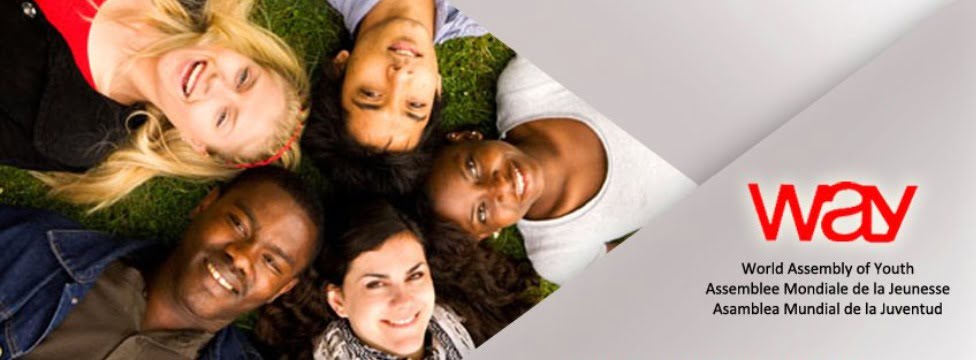“One of the keys to ending child poverty is addressing poverty in the household, from which it often stems. Access to quality social services must be a priority.”— UN Secretary-General António Guterres
In a world characterized by an unprecedented level of economic development, technological means and financial resources, that millions of persons are living in extreme poverty is a moral outrage. Poverty is not solely an economic issue, but rather a multidimensional phenomenon that encompasses a lack of both income and the basic capabilities to live in dignity.
Persons living in poverty experience many interrelated and mutually reinforcing deprivations that prevent them from realizing their rights and perpetuate their poverty, including: dangerous work conditions, unsafe housing, lack of nutritious food, unequal access to justice, lack of political power and limited access to health care.
This year marks the 30th anniversary of the adoption of the Convention on the Rights of the Child (UNCRC) on 20 November 1989. This landmark human rights treaty sets out the civil, political, economic, social and cultural rights of every child, regardless of their race, religion or abilities.
In particular, the Convention recognizes the right of every child to a standard of living adequate for the child’s physical, mental, spiritual, moral and social development. Poverty hurts children’s development and, in turn, leads to lower income and health in adulthood. When child poverty is recognized as a denial of children’s human rights then people in positions of responsibility and power are legally bound to promote, protect and fulfil children’s rights. Above all, it is imperative to recognize and address the specific discriminations experienced by the girl child.
It is crucial that children’s participation be recognized as a process and not a one-off event. Too often consultation is mistaken for participation. Whereas the process of consultation gathers children’s views on a particular issue or question, participation means that children actually join in decision- making.
The commemoration of October 17 each year demonstrates how we can achieve greater participation by enabling people from all walks of life to come together to respect the human rights and dignity of people living in poverty. The participation of children and young people has always been encouraged and supported as an integral part of October 17 observances at the United Nations and around the world. This recognizes the important roles children can play by sharing and applying the valuable knowledge they have acquired from their personal daily struggle to overcome poverty.
There is no denying that poverty is a social struggle and affects communities far and wide with impacts on single people and whole cities. With rising awareness in recent decades there are now more steps than ever being taken towards the eradication of poverty and the assistance and inclusion of those struggling with poverty towards being a part of the solution. The complexity of poverty is now better understood due to increased cultural awareness and sympathy with true connection and motion towards a solution.
We, at the World Assembly of Youth understand the importance of public awareness, voice and the active participation of people living in extreme poverty, concerns and priorities of millions of people, especially those living in extreme poverty. We believe that young people should be engaged to be the agent of change representing the voice of the people who are in need.
As the world commemorates the International Day for the Eradication of Poverty, we call on youth and stakeholders from all countries to actively work to support the world most vulnerable.
Services
Stakeholder mapping, analysis, engagement and communication needs to be detailed to avoid business losses or even worse, a crisis. How can you do this effectively to prevent failure? ...
Data-driven business decisions have never been as crucial, especially in this era. MGBF leverages off, technology, experience and market presence to aid businesses in making accurate decisions. ...
MGBF provides comprehensive strategic advice and results-focused solutions to solve clients' problems in business-government relations so they can focus on their core business. ...
A critical business challenge is meeting the right decision-makers and potential buyers through the best channel and platform. How will you improve your business competency? ...
Upcoming Events
In this episode of 'A Working Lunch with Nordin', MGBF's Nordin Abdullah and regional commentator Eddin Khoo will discuss the biggest threats and opportunities for businesses as we look to manage change in the South China Sea.
This MGBF Roundtable will feature thought leaders form Japan, Australia, Singapore and Malaysia dealing with the critical issues of manipulation of public listed companies and government and their financial impacts.
A series of networking sessions with various business associations and trade organisations exploring high-value opportunities for business leaders and entrepreneurs looking to build the relationships that matter.
This integrated event will include a forum, dedicated business matching, site visits, a gala dinner and a round of golf. Aptly themed, the focus will be on regional food security issues and trends in the context of the supply chain, agriculture technology and trade regulations and policies.
MGBF In The News
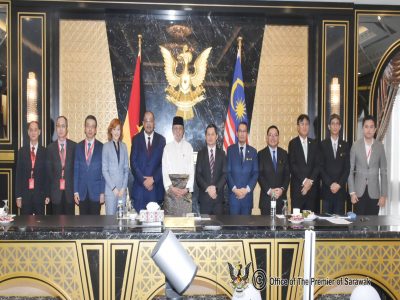
Planet QEOS and China Machinery Engineering Corporation (CMEC) are interested in investing RM10 billion to co-develop advanced Megawatt peak (MWp) agrovoltaic in Baram, to further boost Sarawak’s green energy initiative and food security. Sarawak Premier Datuk Patinggi Tan Sri Abang Johari Tun Openg was briefed on Friday by both the […]
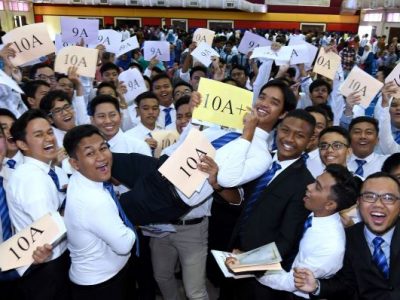
Last week SPM results came out, 373,974 aspirants who have been waiting patiently over the last few months would now know their fate. Some 10,109 have received all A’s, the golden standard of academic success and the ticket to those looking to study the “more advanced” subjects in university. Proudly, […]
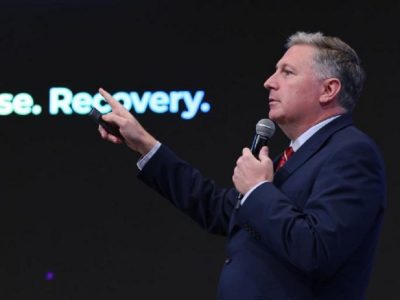
The classic knee-jerk reaction is to say, fire the coach, change the leadership of associations, and reduce the funding till they start performing better. This kind of negative reinforcement may work for kindergarten children, but we are dealing with high-performance adults – individuals much further along in their psychological and […]
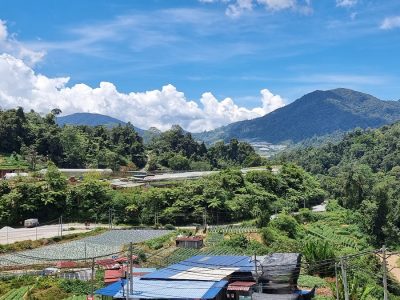
Since its earliest tea plantations in 1929, Cameron Highlands has grown to become a key player in the agricultural landscape of Malaysia, producing 40 per cent of all vegetables grown. Despite Malaysia shifting its economic focus away from agriculture, the industry remains imperative for food security and the livelihoods of […]

Although at first glance the travel industry and the agricultural sector appear to have nothing in common, they actually share more than meets the eye. The economic benefits of tourism to the agricultural sector can be multiplied several times over. “Tourism brings the end consumers closer to the source, which […]
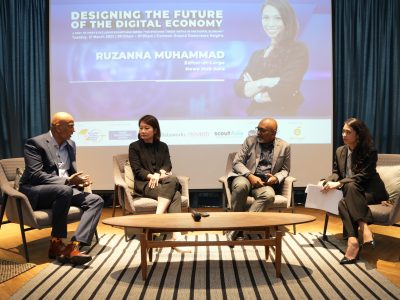
The Malaysia Global Business Forum (MGBF) recently held a high-level roundtable themed ‘Designing the Future of the Digital Economy’, attended by industry leaders and business associations. The guest of honour was Yang Berhormat Syerleena Abdul Rashid, the Member of Parliament (MP) for Bukit Bendera in Penang. The MP’s Special Session […]

The Malaysia Global Business Forum (MGBF) will be hosting a roundtable on ‘Designing the Future of the Digital Economy’ on 23 February 2023. It is the culmination of the first three MGBF Exclusive Roundtable Series titled ‘The Evolving Threat Matrix in the Digital Economy’ held throughout 2022. According to the […]
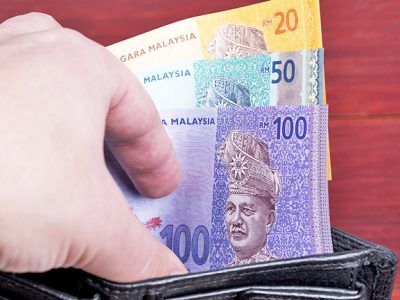
The Founding Chairman of the Malaysia Global Business Forum (MGBF), Nordin Abdullah, today spoke on Bernama TV’s leading English talk show, The Brief, hosted by Jessy Chahal, on the topic of a stable political reality and what that means for the Malaysian economy. Nordin said, “The first thing that it […]

More than 1,100 years ago, Muhammad ibn Musa al-Khwarizmi was developing the mathematical formulas that we know today as algorithms which now have become so intertwined with the business fortunes of global media giants and the very fabric of geopolitics. A series of recent high level international reports have revealed […]

KSK Land has been recognised by the Malaysia Global Business Forum (MGBF) for its role in attracting high net-worth individuals to Malaysia post-pandemic. The first challenge in investor attraction is “selling” the country. In the context of Asia, Malaysia is competing with some very established investment destinations. The second […]

Malaysia, in particular Kuala Lumpur, continues to position itself as a regional centre to do business, educate a family and enjoy a global lifestyle. One company, KSK Land, has taken the lead in positioning itself and the city of Kuala Lumpur as a property investment destination for the global citizen […]
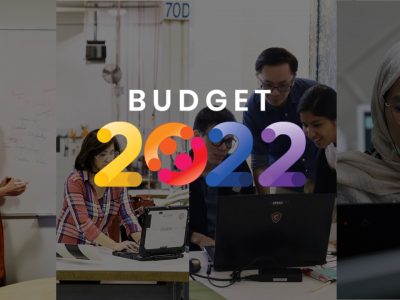
The upcoming budget represents an opportunity to build resilience in the critical sectors that will form the backbone of the country’s future-facing economic ambitions. This however needs to be achieved in the context of managing the community sectors most impacted by COVID-19 over the past two years. The Keluarga Malaysia (Malaysian Family) […]

Malaysia Global Business Forum (MGBF) has moved to support the creative economy as the overall economy moves into a recovery phase following the COVID19 pandemic. As a step in the direction of normalcy, the MGBF has agreed to host the art exhibition “I Know You’re Somewhere So Far” by one […]
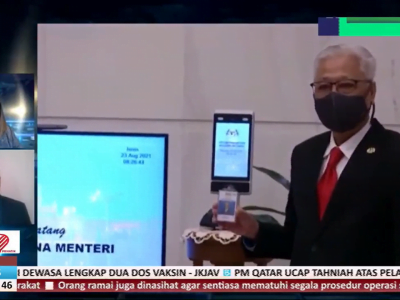
Congratulations to Datuk Seri Ismail Sabri Yaakob for taking up the mantle of the ninth prime minister of Malaysia. There is nothing normal about the situation; it could not have been scripted but it has kept the spectrum of media, mainstream and social, gripped. The first order of business for […]

In a stirring speech to the nation, President Joseph R. Biden, Jr. stamped his brand of leadership on the presidency, in his first act as the 46th president of the United State of America, it signaled several shifts. Perhaps the weather was foreboding with snow falling before the ceremony that […]

KUALA LUMPUR, 6 July 2022 – As the global economy continues to deal with unprecedented levels of disruption caused by the pandemic and the conflict between Russia and Ukraine, the convergence of energy security and food security issues has become a front-of-mind issue faced by policy makers and consumers alike. […]

KUALA LUMPUR, 23 June 2022 — Malaysia Global Business Forum (MGBF) ties up with scoutAsia to ensure that businesses are equipped with deeper regional insights. The past two years has seen a massive shift in the way businesses are conducted with digitisation, digitalisation and automation continuously being adopted to improve […]
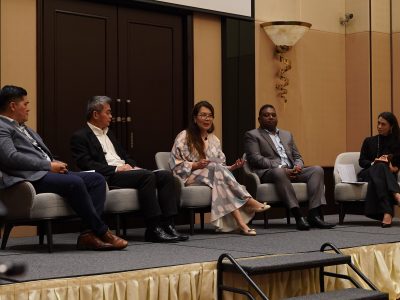
KUALA LUMPUR, 25 May 2022 – The Malaysia Global Business Forum (MGBF)’s exclusive roundtable on ‘Security Concerns in Critical Value Chains’ was held in a hybrid setting yesterday at the Eastin Hotel Kuala Lumpur. The guest of honour was Yang Berbahagia Tan Sri Dato’ Seri Rafidah Aziz, former minister of […]
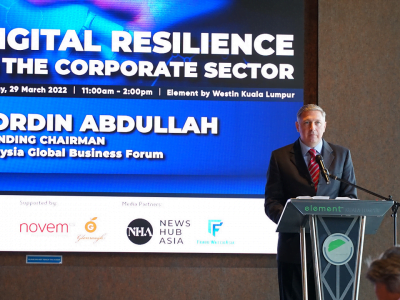
We live in the age of crisis. At the heart of any crisis is the threat of rapid change. Change too deep or too wide that the current coping mechanisms for an individual, corporation or government are unable to remain resilient. An unwelcome paradigm shift, like the proverbial spider, that […]


